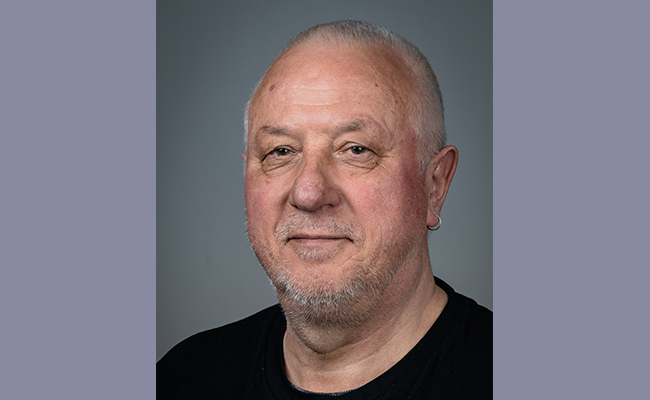
From student to Emeritus Professor, Professor Lachlan Paterson's connection with Otago endures beyond his retirement.
Professor Lachlan (Lachy) Paterson is retiring from Otago, where he has been a member of Te Tumu - School of Māori, Pacific and Indigenous Studies.
“He Pākehā ahau, nō Whakatāne i tupu ai ahau i te rohe o Ngāti Awa, i te taha o te awa o Whakatāne, i raro hoki i te maru o Putauaki. I am Pākehā, from Whakatāne. I have felt very privileged to be able to build a career alongside my colleagues in Te Tumu,” says Professor Paterson.
When he retires at the end of June, Professor Paterson will be made an Emeritus Professor in acknowledgement of his exceptional contribution to teaching and research, and his service to the University.
Professor Paterson says, “I am so grateful to be able to maintain a meaningful connection with Te Tumu and the University, perhaps with opportunities, depending on the wants and needs of my colleagues, of being able to still contribute.”
Prior to academia, Professor Paterson was a signal maintainer for New Zealand Railways, based in Dunedin.
“When I worked for the railways, we often worked away from home. We could either go to the pub in the evenings, watch TV, or do something else. I started teaching myself te reo Māori. I realised I needed more, so enrolled in a night class for School Certificate, then Correspondence School for Bursary. When the opportunity came to enrol at university, I was already part way there.
“As a second-language learner, you may not attain the full fluency that a native speaker has, but it's still a great journey to be on, one that never ends.”
He joined Te Tumu as a student in 1996, completing a BA in History and Maōri Studies, and then onto a PGDipArts and PhD, both in Māori Studies. His research has mixed his two main interests of Māori history and Māori language, particularly through discussion and analysis of Māori-language texts. For example, his dissertation and thesis both looked at different periods of niupepa (Māori-language newspapers) and this has remained at the core of his research, both in terms of print culture, and using these resources for historical analysis.
More recently, he and colleague Professor Angela Wanhalla (Ngāi Te Ruahikihiki, Ngāi Tahu), History, gained a Marsden grant to look at the history of the Māori Second World War experience on the home front, which has become the focus of his current research. Scholarly work on the Māori war experience has generally focused on overseas military service, but these years are also significant as a key period when Māori transitioned from a largely rural society to an urbanised population more actively engaged in the market economy.
On graduating, Professor Paterson worked as a lecturer in History at Massey University for two years, before returning to Otago to teach in late 2007. He has held many roles since, including acting Dean of Te Tumu, Acting Associate Dean (Academic) and Associate Dean (Graduate Studies) for Te Kete Aronui. He also had a stint as Acting Dean of the Graduate Research School while the incumbent took research leave.
One of the changes he has observed during his time with Te Tumu is more students from kura kaupapa coming to study who already have great Māori-language skills. He says it has been an ongoing challenge for the School on how they cater to these tauira needs, while also looking after the many who come to Te Tumu to learn te reo Māori me ōna tikanga.
In his retirement, Professor Paterson is looking forward to seeing his grandchildren more often. He intends to finish off some research projects that have been sitting dormant, and he's planning on being more active online, including setting up a YouTube channel.
Professor Paterson says what he has most enjoyed about his time at Otago is:
“He aha te mea nui o te ao? He tāngata, he tāngata, he tāngata. I am fortunate that I have had some wonderful colleagues in Te Tumu over the years, from whom I have learnt so much.”
